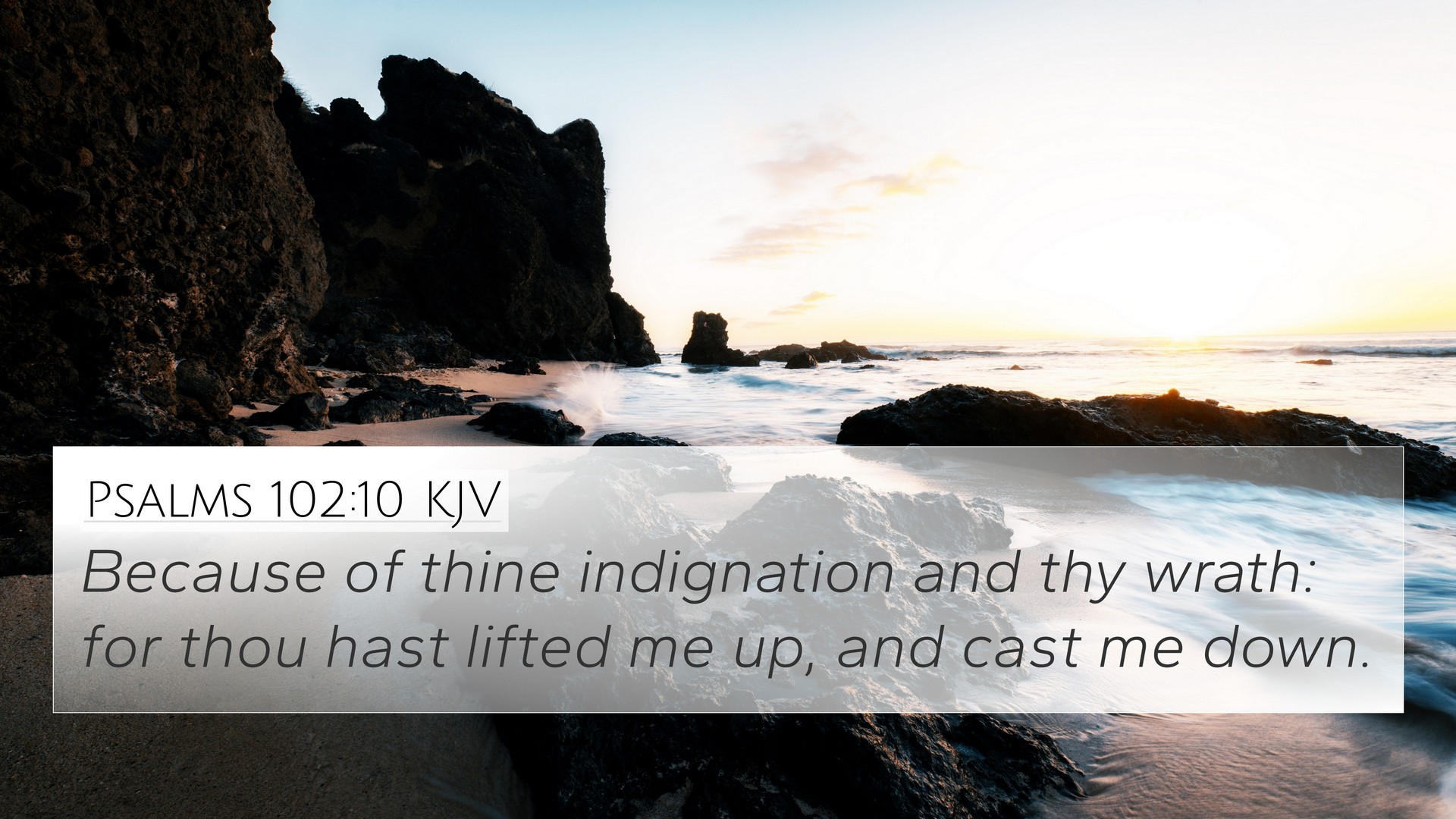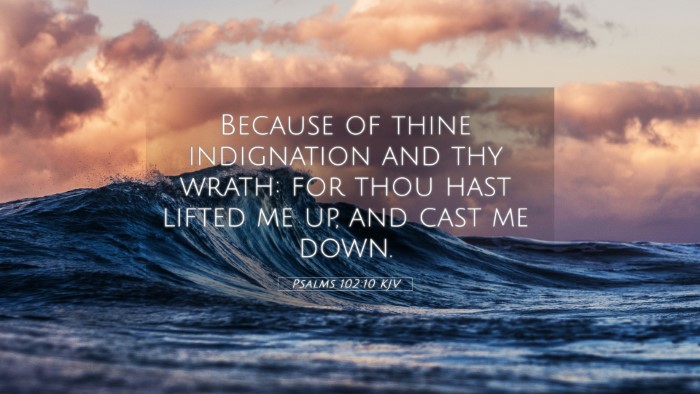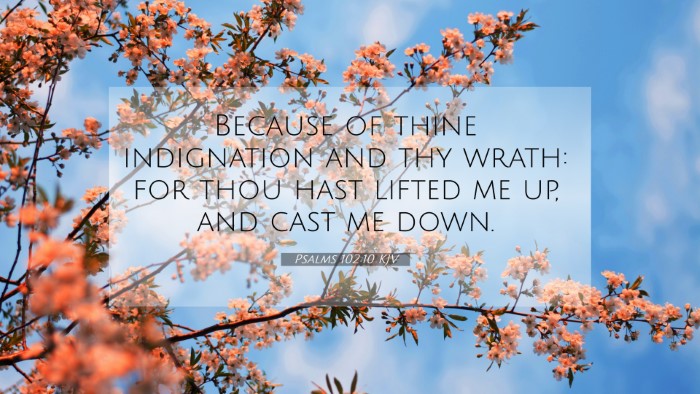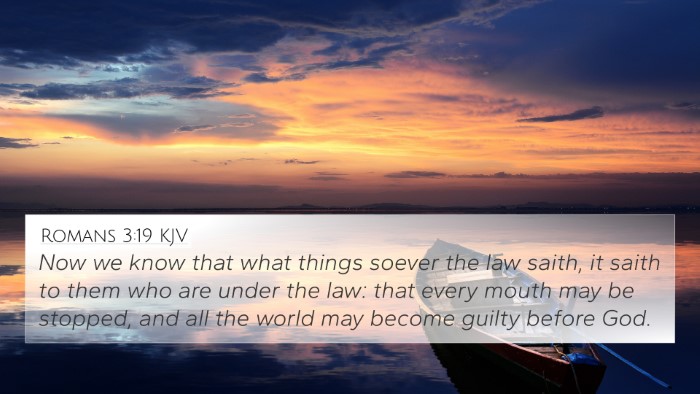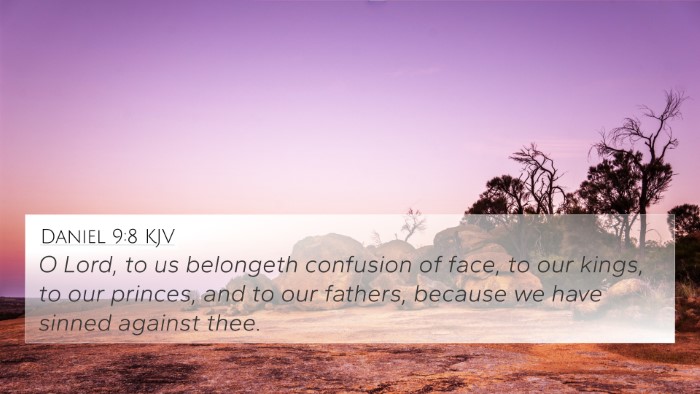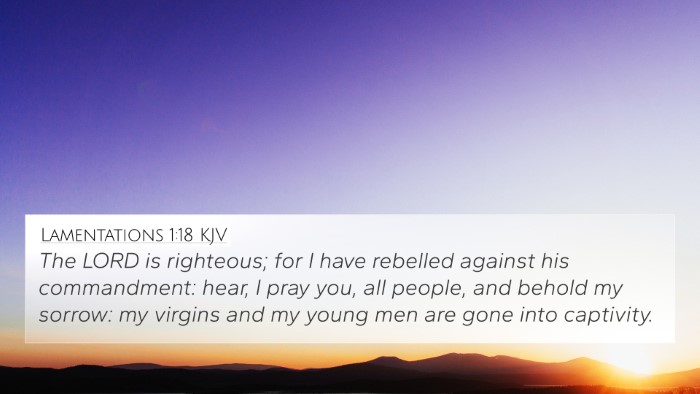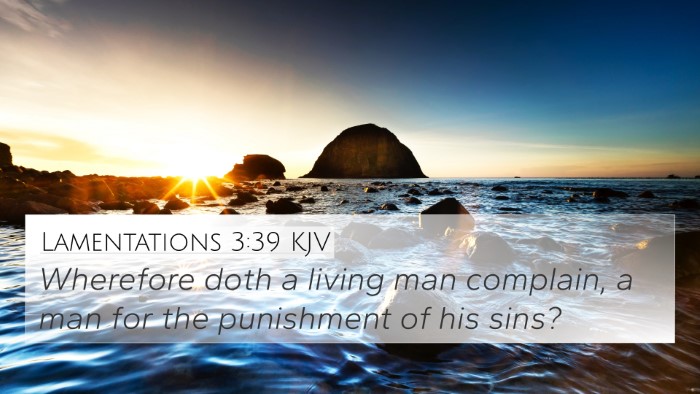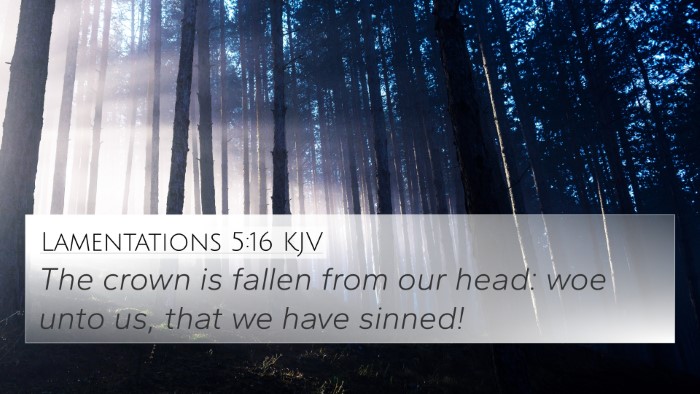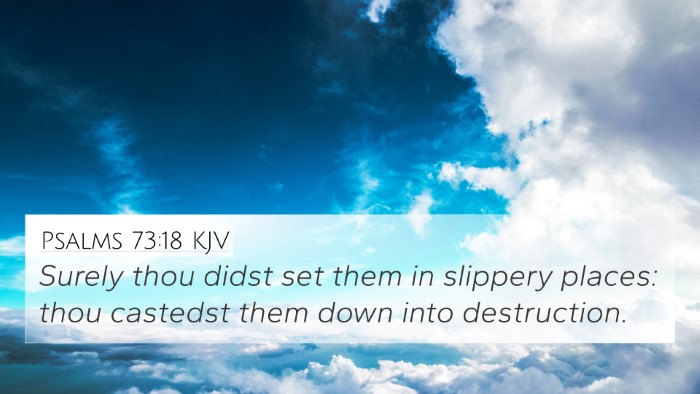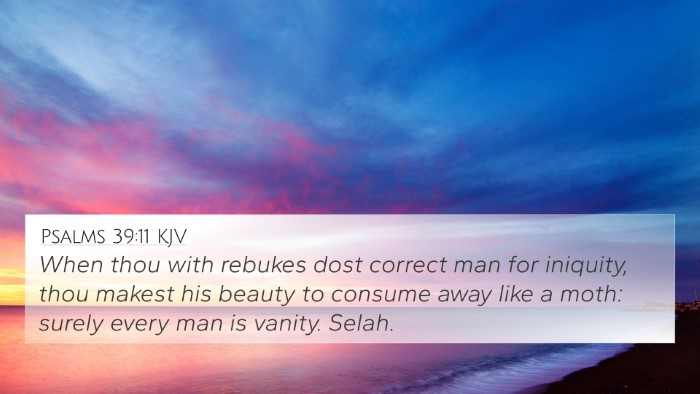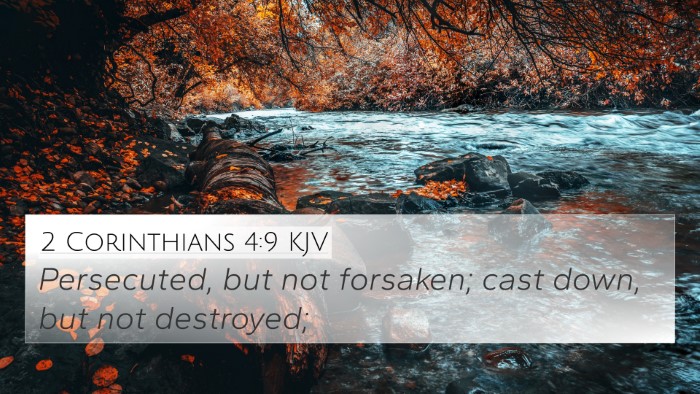Understanding Psalms 102:10
Psalms 102:10 states: "Because of Your indignation and Your wrath, For You have lifted me up and cast me away." This verse reflects a deep sense of despair and abandonment, offering profound insights into the human experience of suffering and divine displeasure. By combining the insights of notable public domain commentators such as Matthew Henry, Albert Barnes, and Adam Clarke, we can gain a fuller understanding of its meaning.
Verse Analysis and Insights
In this verse, the psalmist expresses the feelings of being overwhelmed by God's anger. Let's break down the interpretations provided by our commentators:
-
Matthew Henry: Henry emphasizes the emotive aspect of the verse. He discusses how divine wrath can lead to a sense of being forsaken. The psalmist acknowledges that the distress faced is in response to God's displeasure, which speaks to the broader theme of accountability for sin.
-
Albert Barnes: Barnes highlights the context of God's judgment. He notes that the lifting up and casting away can be understood as cycles of divine favor and disfavor. This dynamic serves as a reminder of our dependence on God's grace, framing the verse within the human experience of redemption and judgment.
-
Adam Clarke: Clarke provides an analysis that ties the emotional state of the psalmist to the collective experience of Israel. He posits that this verse captures a moment of corporate lament and recognition of sin within the nation, thereby linking personal struggles to communal accountability.
Thematic Connections
The themes present in Psalms 102:10 resonate with various other scriptural references, establishing a pattern of God’s reaction to human sinfulness. Below are some notable Bible verse cross-references that deepen our understanding:
- Lamentations 3:43-44: "You have covered Yourself with a cloud, That prayer should not pass through." This reflects a similar theme of feeling shut out from God due to sin.
- Psalm 38:1-2: "O LORD, rebuke me not in Your wrath, And chasten me not in Your hot displeasure!" Here, the plea signifies the fear of divine indignation like that expressed in Psalms 102.
- Isaiah 54:7-8: "For a mere moment I have forsaken you, But with great mercies I will gather you." This verse suggests the potential for restoration after being cast away.
- Matthew 27:46: "My God, My God, why have You forsaken Me?" This statement by Jesus captures the essence of abandonment and aligns with the emotional turmoil of the psalmist.
- Job 30:20: "I cry out to You, O God, but You do not answer; I stand up, but You merely look at me." Job's cry mirrors the distress portrayed in Psalms 102.
- Psalm 51:11: "Do not cast me away from Your presence, And do not take Your Holy Spirit from me." The psalmist acknowledges the fear of separation from God.
- Hebrews 12:6: "For whom the Lord loves He chastens, And scourges every son whom He receives." This New Testament reference supports the idea of divine discipline as a demonstration of love.
- James 4:8: "Draw near to God and He will draw near to you." This emphasizes a mutual relationship wherein turning from God leads to feeling cast away.
- Revelation 3:19: "As many as I love, I rebuke and chasten. Therefore be zealous and repent." This calls us to recognize the redemptive purpose behind divine rebuke.
Practical Applications of Psalms 102:10
The verse invites readers to reflect on their own relationship with God and recognize the gravity of sin. It serves as a powerful reminder of the importance of repentance and drawing near to God. Here are some practical takeaways:
-
Embrace Accountability: Recognize that our actions influence our relationship with God. The distress felt by the psalmist compels us to evaluate our own lives and behaviors.
-
Seek Restoration: Feelings of abandonment can occur, but amidst this, we can seek to return to God's grace and mercy. Just as the psalmist laments, we too can actively seek reconciliation.
-
Understand Divine Discipline: Recognize that suffering may arise from God's corrective hand, which serves to bring us back to Him. The psalmist’s appeal to God's nature invites us to embrace growth through trials.
-
Engage in Community Lament: Like the psalmist speaking for Israel, we can express communal feelings of crisis, right our shared experiences before God, and find strength in collective prayer.
-
Remember God's Faithfulness: Despite feelings of God's indignation, we can hold onto the promise of His eventual mercy and love, following the trajectory of the psalms that leads towards hope.
Cross-Referencing Tools and Methods
To delve deeper into the connections between Bible verses, consider the following tools and methods:
-
Bible Concordance: A useful resource for finding specific verses and their occurrences throughout Scripture. This encourages exploration of themes.
-
Cross-Reference Guides: Utilize guides that outline links between verses, helping to visualize where themes converge across the Testament.
-
Bible Chain References: An effective method of studying passages that lead from one verse to another, enhancing understanding through relational study.
Conclusion
Psalms 102:10 touches upon a universal theme of suffering and divine displeasure, but also encapsulates the hope for redemption. By cross-referencing this verse with others, we can better appreciate the way the Bible dialogues across its pages, revealing God's unchanging nature amidst our human experience. Whether through lament or restoration, this verse and its supportive texts encourage believers to seek God's grace in times of distress.
